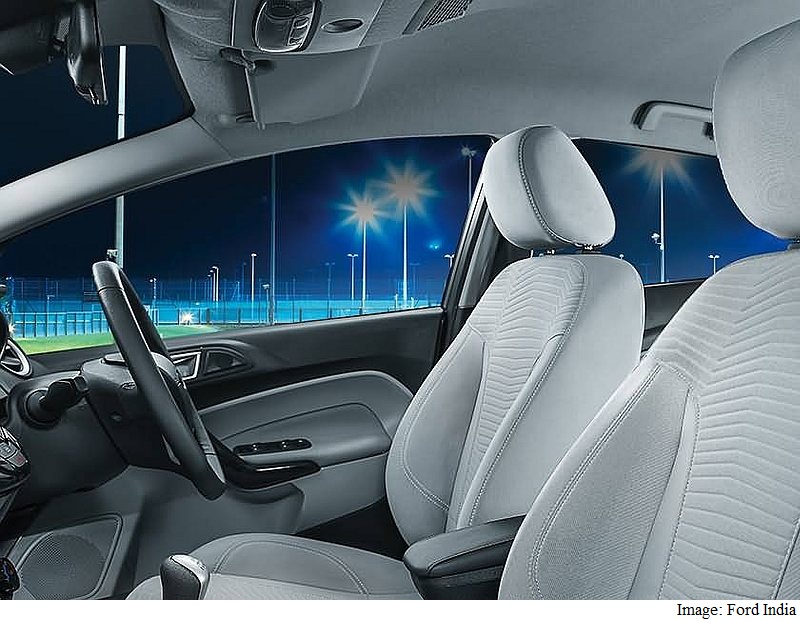- Home
- Others
- Others News
- Ford Ad Tries to Cast Doubt on Self Driving Cars
Ford Ad Tries to Cast Doubt on Self-Driving Cars

What do you do when you can't win fairly? Start slinging mud.
Take for example, a recent piece of sponsored content (a nice word for an advertisement) on Car and Driver . It's brought to us by the Lincoln Motor Company, a division of Ford.
The article argues that a shift to fully self-driving vehicles "will require massive amounts of philosophical, technological, and legislative effort and change."
There's an important distinction here. Traditional automakers are paddling in the shallow end of the autonomous pool, with the promise of features such as automatic braking. Tech companies such as Google are doing cannonballs from the high dive, reimagining the automobile for the digital age, removing the driver, steering wheel and pedals. That's the type of autonomous driving Ford is poo-pooing.
There are worthy questions about the nascent technology, including how will self-driving cars handle the busiest city streets and inclement weather? How serious are the hacking risks? What privacy will passengers give up?
But the advertisement's arguments against fully self-driving cars are the equivalent of dropping a Baby Ruth in the deep end of the autonomous pool.
Take what's called the trolley problem. When an accident is unavoidable, should a car be programmed to hit another car or a pedestrian? Does it swerve to avoid hitting two people so that it will hit one?
"Asking your car to choose between lives is as logical as you asking your Nest thermostat whether you should spank your child," writes the author.
Huh? There's no parallel between the two situations. In fact, asking a machine to handle a potential accident is extremely logical, as it could prevent many of them. Self-driving cars don't get distracted, drive drunk, or text behind the wheel. Motor-vehicle deaths are expected to surpass 40,000 in the United States this year. Around the world 1.2 million people die every year in motor vehicles. Self-driving vehicles could lower that number.
If one really cares about ethics and the fair treatment of human lives, why give the cold shoulder to a technology that is likely to save millions of them?
"According to many with a vested interest in seeing autonomous driving become reality, it's just a few years away," reads one passage in the story. Note the phrase, "vested interest."
(Also see: Android Auto and Apple CarPlay: Do We Really Need Them?)
Motor vehicle crashes are the leading cause of death for Americans between the ages of 5 and 34. Doesn't everyone have a vested interest in seeing the full potential of this technology arrive? But that may not be the case for the traditional automakers. If the fully autonomous vehicle is realized, and is far safer than traditional vehicles, automakers will find themselves protecting their dated businesses, not the public interest.
The article also warns that only a few states have laws allowing self-driving vehicles. What a hindrance! But some states are actually courting companies making self-driving vehicles. And while Texas hasn't passed a specific law on self-driving vehicles, Google is testing in Austin without state interference.
If Uber can get regulators on their side against taxi companies, a technology that may save thousands of lives likely can, too. After all, the whole point of regulations is to protect the public. If self-driving car prove to be the best way to protect citizens in transit, politicians will embrace them.
The existential risk for automakers is they may not be embracing digital technologies enough. To maintain relevance, they may need to get in the deep end of the pool with Google, Uber and others. The alternative could be the fate of so many newspapers, bookstores, travel agents and camera companies, which didn't leverage the strongest tools available to keep pace with innovation.
As the saying goes, don't bring a knife to a gun fight. Yet right now the automakers are brandishing a handful of Ginsu knives.
© 2015 The Washington Post
Catch the latest from the Consumer Electronics Show on Gadgets 360, at our CES 2026 hub.
Related Stories
- Samsung Galaxy Unpacked 2025
- ChatGPT
- Redmi Note 14 Pro+
- iPhone 16
- Apple Vision Pro
- Oneplus 12
- OnePlus Nord CE 3 Lite 5G
- iPhone 13
- Xiaomi 14 Pro
- Oppo Find N3
- Tecno Spark Go (2023)
- Realme V30
- Best Phones Under 25000
- Samsung Galaxy S24 Series
- Cryptocurrency
- iQoo 12
- Samsung Galaxy S24 Ultra
- Giottus
- Samsung Galaxy Z Flip 5
- Apple 'Scary Fast'
- Housefull 5
- GoPro Hero 12 Black Review
- Invincible Season 2
- JioGlass
- HD Ready TV
- Laptop Under 50000
- Smartwatch Under 10000
- Latest Mobile Phones
- Compare Phones
- Samsung Galaxy A07 5G
- Vivo Y500i
- OnePlus Turbo 6V
- OnePlus Turbo 6
- Itel Zeno 20 Max
- OPPO Reno 15 Pro Mini 5G
- Poco M8 Pro 5G
- Motorola Signature
- Lenovo Yoga Slim 7x (2025)
- Lenovo Yoga Slim 7a
- Realme Pad 3
- OPPO Pad Air 5
- NoiseFit Pro 6R
- Xiaomi Watch 5
- Acerpure Nitro Z Series 100-inch QLED TV
- Samsung 43 Inch LED Ultra HD (4K) Smart TV (UA43UE81AFULXL)
- Asus ROG Ally
- Nintendo Switch Lite
- Haier 1.6 Ton 5 Star Inverter Split AC (HSU19G-MZAID5BN-INV)
- Haier 1.6 Ton 5 Star Inverter Split AC (HSU19G-MZAIM5BN-INV)

















